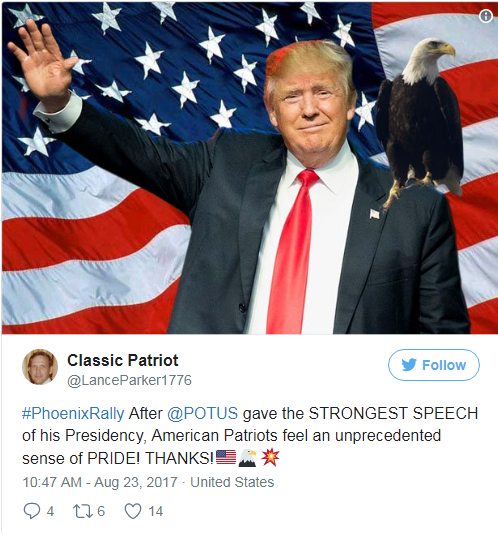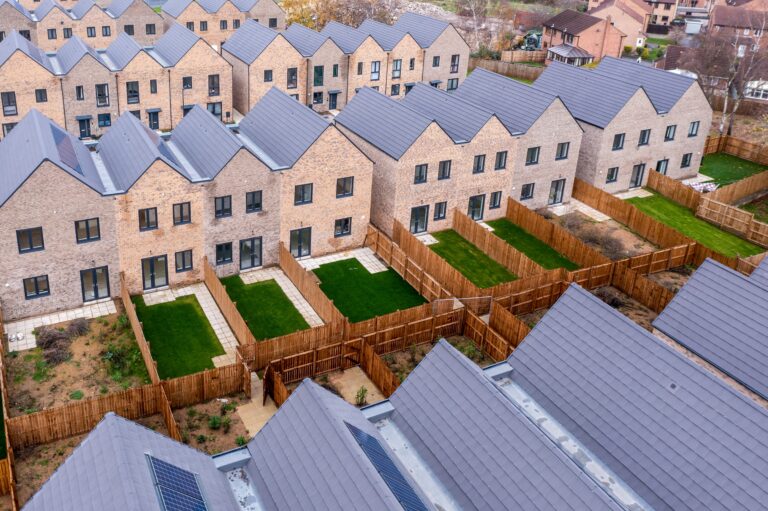Social media has become one of the biggest discussion platforms for world events. Twitter especially has become highly politicised, acting as a forum for analysis around each and every key moment, and holding those in the public eye to account. This has become even more apparent, now that high-ranking politicians are getting involved in these discussions and even using social media themselves to drum up support for their ideas and gauge the responses of the people.
The recent Pheonix Rally for US President Donald Trump once again set the Twittersphere alight, with commenters (on both sides, there are many sides) debating the events of the evening, both within the rally itself and at the concurrent protest on #PhoenixRally.
The divisive Mr Trump received outpourings of support and condemnation in seemingly equal measure, with many of his supporters deeming the night’s speech as one of the best of his presidency, whereas others honed-in on his follow-up to Charlottesville, maintaining that his responses effectively condoned racism.


The president himself is incredibly active on social media and often uses it to discuss his own opinions in relation to events. Many have questioned whether Mr Trump should be quite so vocal on platforms like Twitter, but his presence certainly opens the doors for his actions and words to be held to account, leading to large-scale expressions of support or disgust, and @POTUS’s tweets around Phoenix were no different.


Talk then turned, as it usually does in discussions about the current president, to the influence of the media and their reporting of events. Coverage of the attendance to the event was still a key element, as it has been since the varying reports of supporters at Trump’s inauguration. It makes sense that a number of those reporting the events on social media were quick to find evidence of high turnout and support:

However, despite the denunciation of #FakeNews over social media from Trump and his supporters, there were others who pointed out that the images being shared of those attending the rally, may not have been what they seemed:
@RedTRaccoon – Trump supporters are saying this pic is the #PhoenixRally It’s the Cleveland Cavaliers victory parade #fakenews

The reporting of media sources has been under great scrutiny during the Trump administration, with many claiming that it is liberal, leftist sources that are leading the charge against the president. However, as TV presenter Dave Briggs pointed out about the coverage of Phoenix was that one of the most scathing reviews of the president had come from a conservative news source, The Weekly Standard:
@davebriggstv – Those of you who feel it’s “liberal media” blasting the #PhoenixRally CONSERVATIVE @weeklystandard says Trump was “telling obvious lies.”

Social media is having an incredible influence over how we interact with politicians in general. Here in the UK, there have been many instances of politicians and Prime Ministers being called out by the general public in a severe, or humorous way. Even this week, with GCSE Results Day looming, a parody account for Theresa May posted that those who fail will be asked to leave the country:

Of course, social media is also a really good tool in terms of building reputation, rather than just defending it, whether that’s through expressing thanks to supporters, or by showing character beyond the political sphere:


For better or for worse, there is plenty that we can learn from the actions of politicians and the reactions of the world on social media. It reveals the topics that people care about, shows where there is an appetite for change, and helps to hold those with the power to account in a public forum. Needless to say, we will continue to see news breaking through these social channels, and will be able to gauge the opinions of both the many and the few.




